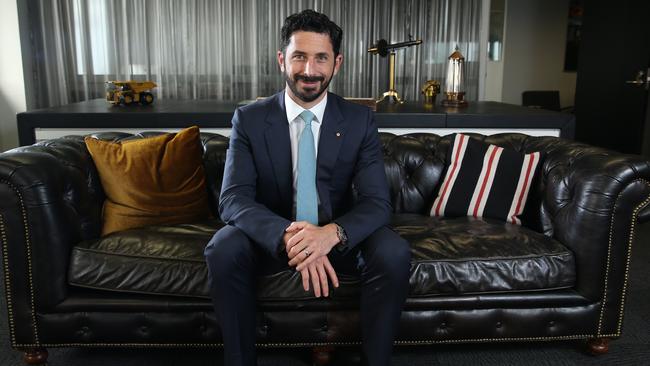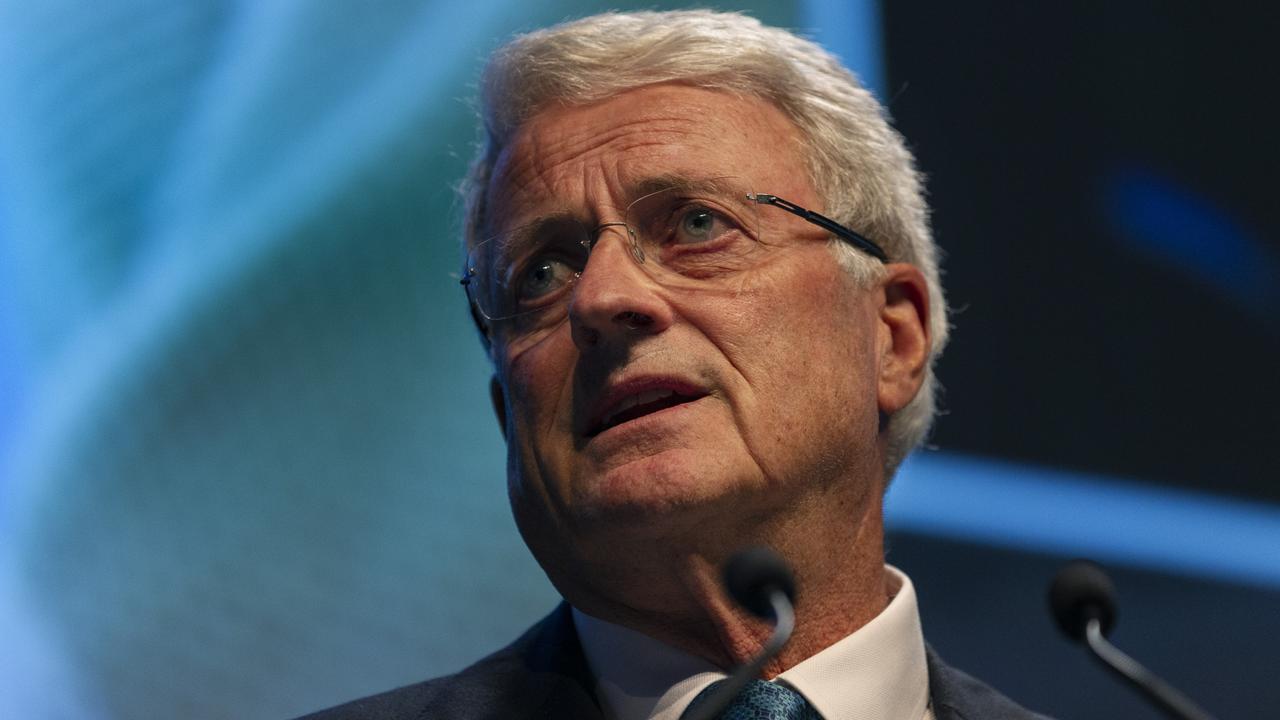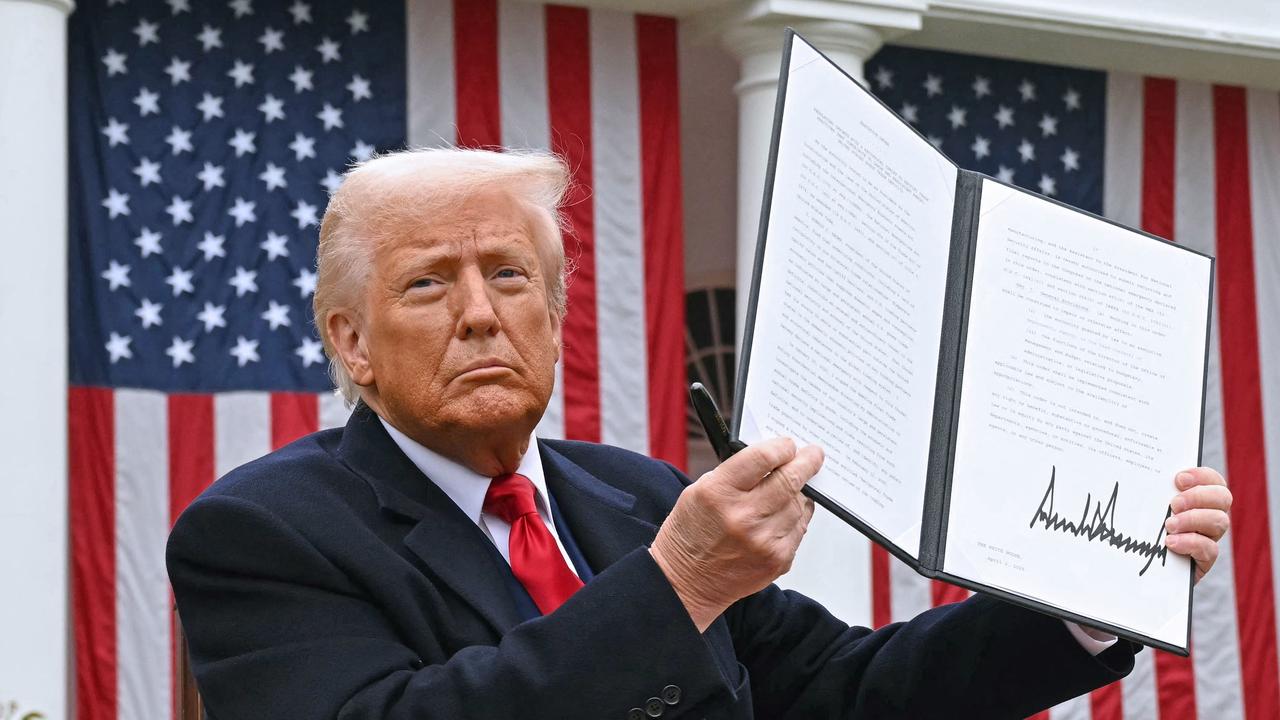Ryan Stokes’ Seven Group wins Boral control, waves white flag
Seven Group chief executive Ryan Stokes is in line to become chairman of Boral after the conglomerate won control of the construction materials company.

Seven Group chief executive Ryan Stokes is in line to become chairman of Boral after the conglomerate controlled by his father, billionaire Kerry Stokes, won control of the construction materials company, handing it the power to accelerate a turnaround of its core Australian operations.
The Seven Group boss waved the peace flag after winning absolute control of Boral on Thursday, promising to maintain a board with a majority of independent directors.
Mr Stokes is expected to replace Kathryn Fagg as Boral chair and Seven Group CFO Richard Richards will be reinstalled on the board along with a potential third director role.
Seven Group first bought into Boral just over a year ago when it snapped up a 10 per cent stake and on Thursday hit 52.7 per cent, including a 3 per cent equity swap, which has triggered an automatic two-week extension to Seven’s $7.40 a share offer for the building products company.
The extension is aimed at giving minority shareholders the chance to accept the bid now control has passed.
The ruthless battle to gain control over one of Australia’s oldest manufacturers has shown the 80 year-old billionaire retains the corporate clout and willingness to challenge underperforming companies. The expected elevation of his son Ryan as Boral chairman also marks a changing of the guard in the Stokes family.
Ryan Stokes has roughly split his corporate career between the family‘s crown jewels: its media and Seven Group conglomerate arms.
He joined the board of Pacific Magazines in 2002, designed the Yahoo!7 joint venture and shadowed his father on its $4.1bn reverse takeover of West Australian Newspapers in April 2011.
Seven Group, where Stokes has been chief executive since 2015, has prospered in recent years with major strategic moves to buy out the rest of Coates, sell WesTrac China and become Beach Energy’s biggest shareholder. It made its move on Boral after a string of profit downgrades under previous boss Mike Kane, handing it both exposure to an infrastructure-led recovery from Covid-19 and also influence on the future direction of the company.
The original $6.50 a share takeover offer was never likely to tempt Boral’s board after being pitched at a nil premium to its share price at the time. Seven conceded it would be content owning about 30 per cent of Boral but tweaked its bid on several occasions and has now shot to majority control.
The Seven Group conglomerate owns a diverse range of Kerry Stokes’ interests, including a controlling Seven West Media stake, Caterpillar dealerships in NSW, Western Australia and the ACT, Coates Hire and a 30 per cent Beach Energy stake.
There is a growing expectation that Seven will press for faster change at the company it now controls.
“Given the more than 50 per cent ownership it is likely a Seven Group representative will be appointed chair of the board in time,” Macquarie analysts said.
Boral’s board continues to advise shareholders to reject Seven Group’s offer, which at $7.40 is at the bottom end of the independent expert’s range of $8.25-$9.13 per share, even as it conceded its biggest shareholder now had the power to call the shots.
“Seven Group will be in a position to cast the majority of votes at a general meeting of Boral. As such, Seven Group will be able to control the composition of the Boral Board and influence Boral’s dividend policy, the composition of Boral’s management and the strategic direction of the businesses of Boral and its subsidiaries,” Boral said in its target’s statement on Thursday night.
Majority ownership could now see Boral proceed with a sale of its US fly ash business as Boral weighs a potential joint venture, strategic alliance, sale to a third party or retaining the business. Rebooting its mainstay Australian unit could also be fast-tracked as part of the ownership shift.
“It appears more likely that Boral will dispose of its fly ash business in the US, given Seven Group’s commentary around focusing on a turnaround of its core Australian operations while the prospect of a significant cash return given its investment in Boral to date also adds weight to that view,” Macquarie said.
The fly ash business is valued at $1.5bn by Macquarie. A sale could see $4.9bn in overall available cash by the 2022 financial year, easing concerns over the conglomerate’s own balance sheet.
“That should alleviate any concerns around Seven Group’s increased leverage post the bid. Consolidation of accounts would drive a material improvement in Seven Group’s leverage metrics, while the earnings outlook will benefit if Boral’s transformation plan is executed successfully.”
“With Seven Group’s ownership reaching a level of effective control, we expect more detail will be provided on its strategic views for the medium-term opportunity within Boral and execution of its transformation plan,” the broker said.
Boral sold its US building products business for $US2.15bn ($2.9bn) in June but Seven was upset the unit had been sold for a loss and rushed through amid its takeover offer. It claimed the construction materials giant should have received a bigger payday given strong US trading conditions.
The company also sold its half share of the USG Boral plasterboard venture for $1.43bn in October, placating high profile shareholders including Seven and Tanarra, which had been agitating for asset sales.





To join the conversation, please log in. Don't have an account? Register
Join the conversation, you are commenting as Logout